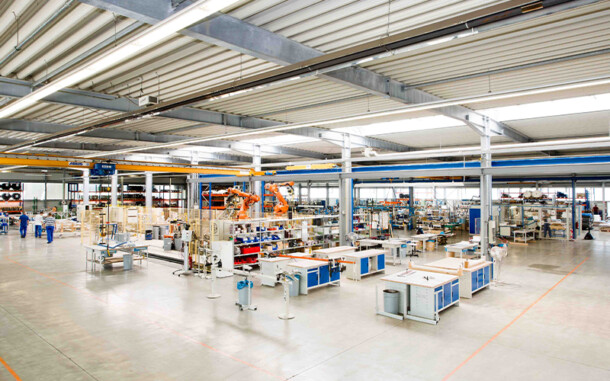Digital transformation in logistics
The logistics industry is facing numerous challenges, from growing customer requirements to global supply chains. Digital transformation is revolutionizing logistics. LOGSOL supports the implementation of digital technologies to make processes more efficient and competitive.
Goals of the digital transformation in logistics

The aim is to achieve a continuous, transparent and efficient flow of materials and information along the entire value chain.
- Increasing process stability through automation and standardization
- Data-based decision-making through the use of modern analysis and reporting tools
- Improving the speed of response to market changes and customer requirements
- Promoting sustainability through resource-saving processes
- Creating an integrative IT ecosystem that intelligently connects existing and new systems
Our services in the area of digital transformation
Digital maturity level
Analysis of processes, assessment of the digital maturity level and derivation of digital development paths. Focus on smart logistics structures, technology-neutral planning and seamless IT integration.
System consulting & IT integration
Consulting on ERP and WMS systems, in particular SAP S/4HANA EWM. Support with the creation of specifications, tenders and system implementation.
Digital solutions
Development and introduction of cloud-based applications for transport, container and time slot management. Customization and new development of software for process digitization.
Information security
Advice on data protection and information security concepts. Support with the introduction of ISMS and preparation for ISO 27001 certifications.
Business intelligence & key figure systems
Definition of relevant KPIs and introduction of powerful BI tools for data-driven decisions and transparent management.
Your advantages with digital logistics solutions
Increased efficiency through automated processes
Cost reduction through optimized resource planning
Customer satisfaction through increased flexibility
More transparency through real-time tracking
Process reliability through reduced susceptibility to errors
Digitalization of production and logistics at Partzsch Spezialdrähte GmbH

Sustainable digitalization requires strong planning –
we support you in this.
I am happy to answer any questions you may have about digital transformation!
Here you can find our privacy policy
The most frequently asked questions about digital transformation
What does digital transformation mean for logistics in concrete terms?
Digital transformation in logistics involves the systematic use of digital technologies to make processes along the supply chain more efficient, transparent and flexible. The aim is to reduce manual work, use data intelligently and create end-to-end, automated processes – from planning to delivery.
Which technologies are at the heart of the digital transformation?
Key technologies include cloud solutions, IoT (Internet of Things), artificial intelligence, business intelligence, robotics, warehouse management systems (WMS), ERP systems, digital twins and automation solutions. The decisive factor here is always the sensible combination in an IT architecture tailored to the customer.
How does a digitalization project in logistics get off to a good start?
The first step is a thorough analysis of the existing processes and IT systems. Based on this, a digital maturity level should be determined and a digital strategy developed together with our team of experts – including an implementation roadmap, priorities, budgets and responsibilities.
What are the specific benefits of a digital transformation in the warehouse or production?
It improves process reliability, reduces errors, lowers costs and increases transparency. Real-time data helps to react more quickly to deviations. Automation (e.g. in order picking or transportation) increases efficiency and reduces the workload of skilled workers.
